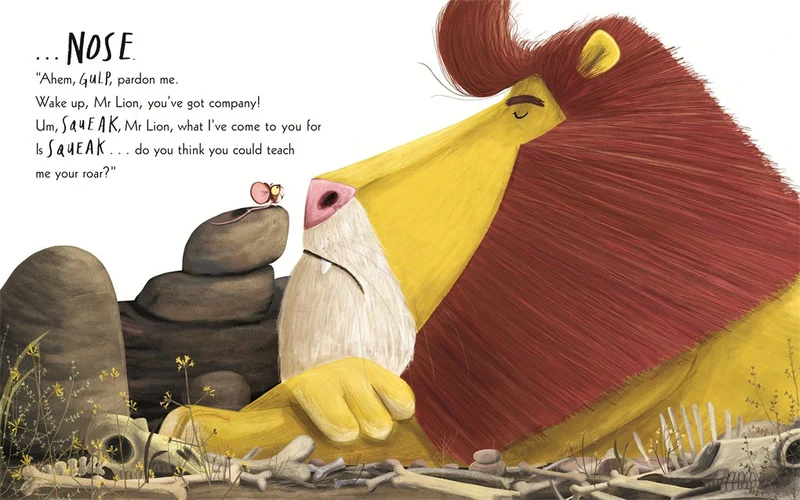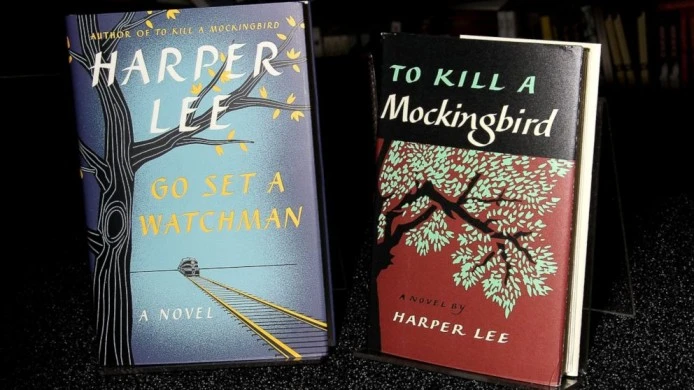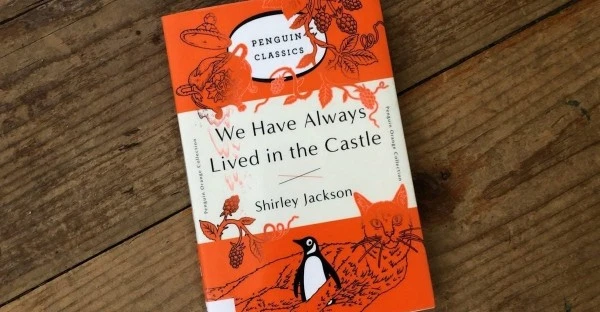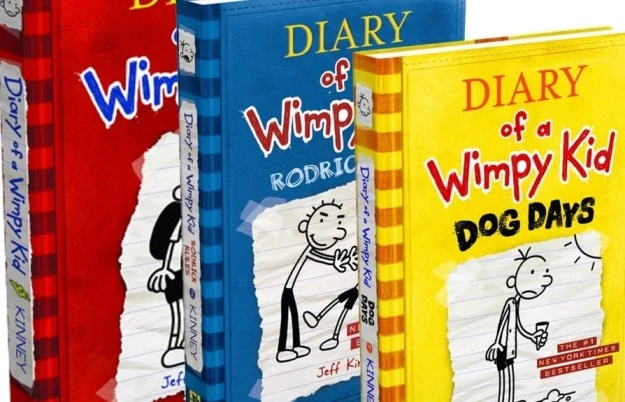August, by Callan Wink: An Excerpt
August flew back to Michigan for Thanksgiving. It was his first time on an airplane, and even though he tried to be nonchalant about it, he held his breath during takeoff and let it out loud enough after they were finally airborne that his seatmate looked at him sidelong. His father met him at the airport in Grand Rapids. He shook August’s hand and threw his bag in the back of his truck, and they started the drive north.
Everything seemed drab; August noticed that right away. The bare trees, the sky a cement sort of gray. Drab and flat. “No snow yet,” he said.
His father shook his head. “Nah. Some in the forecast for next week, maybe. Lots of rain, though. Looks like you’ve grown three damn inches since I’ve seen you last, kid.”
August shrugged. “I don’t know about that. I think I’m still about the same height.”
“Could have fooled me.”
[ Return to the review of “August.” ]
August watched his father out of the corner of his eye as he drove. He tried to assess whether he seemed different in any way, older, skinnier, fatter, happier—but it was impossible to tell. Anyway, he’d been gone for only a few months. There was no reason for anyone to have changed that much at all.
“Saw that buck again yesterday morning. I’m surprised the Amish haven’t gotten him yet. You know how they are—if it’s brown it’s down.”
“When’s the last time we went hunting?”
“Oh man, it’s been a while hasn’t it? I was never too caught up in it. I mostly like sitting out there and seeing what there is to see. I guess you’re the same way.”
August nodded.
“The great thing about hunting is getting up early and then watching it get light from the blind. Waiting for something to show up, drinking coffee, being quiet, all of that. What I don’t like about hunting is what comes after you actually shoot something. Field dressing it, dragging it out, hanging it up, processing it—that starts to look a lot like working on your day off, if you ask me. And these people that are really into hunting, I don’t get it. If you were hungry, then that’s a different deal. But all these fat Texans decked out with fancy gear on these hunting shows? I just want to say, Look at yourself, man, killing something from half a mile away with a high-powered rifle doesn’t make you an alpha predator. Your mother’s father was that way. Quite the sportsman.”
“I remember we went, maybe four years ago, for opening day. We never saw a single deer. I think that was the last time we did it.”
“You might be right about that. That definitely seems right.”
Since August had been gone, his father had put a small TV on the kitchen table. It was on now, low volume, a local channel doing the weather. August knew that his father had always liked to drink his coffee and eat his eggs watching the news. His mother said that a TV in the kitchen or dining room was barbaric, and so for as long as August could remember, his father had eaten breakfast on the couch in the living room, hunched awkwardly over the coffee table, trying not to spill coffee or drop eggs on the carpet. Now he had the little TV right there and he no doubt ate comfortably in the mornings, the coffeepot within easy reach, happily watching the weather girl move across her green screen. To August it pointed to a reality he hadn’t much considered—no doubt there were elements of this new childless, wifeless life that his father preferred.
There was something else. Something about the interior of the house seemed different. He couldn’t place it for the first day he was there. It wasn’t anything tangible. Other than the new TV, the furniture was mostly the same, his father’s barn clothes still hung on the hooks in the mudroom, the dining room was still painted pale yellow, the living room walls were still rough-textured plaster. It was the next morning, still dark, half-asleep in the kitchen, his father pouring coffee for them both, that he realized what it was. The smell. Even after she’d moved to the new house there had always been a certain odor, his mother’s sweet cigarillos gone slightly stale, the linen bags of lavender she scattered around to cover it up. Now his mother’s smoke was gone. The house just smelled of freshly wiped-clean surfaces or whatever was being cooked. Right now it was his father’s standard—over-easy eggs, a stack of heavily buttered white toast, bacon popping in the cast iron. His father was already dressed for hunting, long underwear under his camouflage overalls. He normally shaved before heading to the barn for chores, but this morning his face was rough with stubble, more gray than black, August realized.
August had his head propped on his hand at the table. The coffee was hot and he couldn’t drink it as fast as he’d like; his father, though, slurped it down like it was lukewarm.
“I see you’re on the hard stuff now,” his father said.
“Huh?” August had started to doze sitting up, and his father’s words jolted him back.
“I said, you’re taking it black these days,” his father pointed his bacon fork at August’s coffee. He shook his head. “Go away for a little while and he comes back six inches taller and drinking coffee like a man.”
August shook his head and sat up a little straighter. “I’m not six inches taller.” He took a sip and tried not to make a face as it scalded his mouth. “It smells different in here,” he said. “Better, actually.”
His father loaded a piece of toast with eggs and crunched it down. “Is your mom still chain-smoking those nasty things?”
“Not as many, maybe. Still doing it, though. She mostly goes out to the back porch to smoke these days.”
“Well, that’s good. Lisa and I both just kind of got sick of the smell and so we took a whole day, rented a steam cleaner for the carpet, took down all the curtains, bleached the walls, everything. Made a big difference. You get enough food? Okay then, let me fill up a thermos and we’ll head out.”
“Chores?”
“Lisa is coming over this morning to get them done. Day off for me. She said she’d make us some brunch, too, when we’re back from the woods, before she heads to her folks’ house.”
“Brunch?”
“I know. I’m not exactly sure what that entails, either. I’ll probably just be ready for a ham sandwich by that point, but whatever. We humor them, August. That’s something you realize as you get older. A woman can use brunch like a wrecking ball.”
They were on the porch, slipping on their boots in the dark, their breath coming out in blooming white clouds. “I know a guy whose girlfriend really liked taking baths but his house only had a shower, so while she was gone one weekend he put in a big old claw-foot tub. I helped him carry it in. It was really nice and then maybe only a couple months after this, his girlfriend got accepted into the Peace Corps, broke up with him, and left for Africa. I mean, he didn’t care about baths. He just takes showers like a normal person.”
[ Return to the review of “August.” ]
August’s father laughed softly and rubbed his face with one hand, his palm making a coarse sandpapery sound against the stubble. “I bet that was a learning experience for the guy, for sure. Of course, you can’t go through life without making any gestures at all—that’s no way to live—but you need to be real careful who you reveal yourself to. You make a gesture, open yourself up like that to a woman, and then she knows right away that she’s got you, hook, line, and sinker. How’d you meet this guy? Mr. Claw-Foot Tub?”
“He’s our neighbor. His girlfriend—ex-girlfriend, I guess—is real good friends with Mom. They sit outside and smoke and drink wine all the time.”
“Well, that makes sense. Poor fucker.”
They walked out through the back pasture, the dead grass silvered with frost. Then through the row of white pines, grown tight together so they had to push branches away from their faces, fingers sticky with pitch, up a small rise into the hardwood stand, impossible to walk quietly now, dead leaves crunching underfoot.
The blind was on top of the hill, a shallow dugout area around which August’s father had arranged logs and cut branches for concealment. They sat with their backs against sugar maples and watched the woods around them awaken with dawn. August’s father had only one gun. It was old, a Japanese 7.7 mm Arisaka with open sights, and a chrysanthemum stamped on the receiver. August’s grandfather, a marine, had brought it back with him from the South Pacific. He had died when August was young, and August had no memories of him. As the day gained strength around them, August watched his father’s eyes droop, then close completely. He had the gun cradled in his lap and gave a small, halting snore. August’s father had never been a marine. For most of Vietnam, he was just slightly too young, and then when he turned eighteen his number had never been called. August looked at him now and was simultaneously glad and disappointed to not be the son of a soldier.
August was starting to doze off himself when the rustle of leaves brought him back. He moved his head slowly, trying to see where the noise was coming from. He thought it might be a squirrel running back to its acorn stash under an oak, but then his eyes registered a larger brown shape moving just within his periphery. He shifted slowly to get a better look and he saw it, a buck, no doubt the one his father had mentioned. It was a big-bodied animal, neck thick and swollen with the rut. A good set of antlers, heavy and brown at the base, gleaming ivory at the tips, polished from rubbing on trees and sparring with other males. August reached his leg out and prodded his father with his boot. His father’s eyes opened quickly and August nodded to his left. The deer was sixty yards away, moving steadily, its head down, probably following the scent of doe in estrus. They watched the deer coming, disappearing and reappearing between the trunks of beech and oak and maple. His father was whispering something that August couldn’t make out, so he leaned closer. It sounded a lot like “I forgot to load the gun.”
“What?”
“The box of cartridges on the table at home. No bullets. Gun empty.” He shrugged.
August was stiff from sitting on the cold ground. He reached for the gun and then stood, lining up the iron sights, the buck slowing as it sensed something was not right. “Bang,” August said. And then the buck bounded away, the white flag of its tail receding through the brush. His father laughed and reached out his hand, and August helped him to his feet. He stretched and shook his legs out. “My fault,” he said. “Rookie move.”
“Nah, it’s fine. Easier this way. Probably I’d have missed anyway.”
“I guess now we’ll never know. Hell of a nice deer, though. What do you say? Brunch?”
When they got back they kicked off their boots and hung up their jackets in the entryway. Lisa was in the kitchen, her blond hair pulled back into a tight ponytail. She wore a Detroit Lions sweatshirt and men’s Carhartt pants. She gave August a hug. She smelled like flour and cinnamon, and also of the barn.
“It’s great to see you, August. Do you like eggs Benedict?” she said.
August settled into a chair. The TV was on, NFL pregame. In several hours the Lions would start the inevitable process of losing to the Bears. It was Thanksgiving. “Sure,” he said. “I like eggs Benedict just fine.”
After eating, August did the dishes, and Lisa and his father went to the living room. He could hear them talking but couldn’t make out the words, just the cadence, a measured give-and-take. Lisa would say something and then his father would respond, followed by periods of quiet in which neither said anything. He had no way of knowing what they were saying, but it sounded like the conversation of two people in perfect agreement. Or, just as likely, two people engaged in a tired disagreement. Before leaving for her parents’ house, Lisa gave August another hug. “You used to be just about my height,” she said. “Now here I am, craning my head looking up at you. Don’t let your dad eat all those cinnamon rolls. I made those for you.”
After Lisa left, August took the garbage out to the bin and kept walking down to the barn. He tried to put himself in his father’s shoes; he tried to imagine seeing Lisa, and then his mother, through his father’s eyes. He could get a fair picture of Lisa this way, how his father might see her strong, chapped hands, her Carhartts stretched over her thick thighs, an early riser, red-faced and pleasant. His mother, though, she shifted, a husky voice and a wry smile, a specter, mostly obscured by a cloud of smoke. He hadn’t put a coat on and his arms goose-fleshed in the cold. In the barn it was warmer but empty and quiet, the cows all out to pasture. He wandered past the rows of stanchions, letting a hand trail along them, the inner wooden yokes varnished smooth by the rub and push of countless bovine necks dumbly enduring the suck of the milker, reaching out for feed.
Out of habit, on his way toward the haymow ladder, he flicked the radio on. It was the same old fly-specked Sony with the antenna extension his father had fashioned from a coat hanger. After an ad for Marvel Quality Used Cars, Paul Harvey’s voice came on.
On Thanksgiving Day it seems especially important to honor the good folks that help this great land produce her bounty. Here’s a tribute to all the farmers out there.
August climbed the ladder and stuck his head up into the haymow. Shafts of light found their way through the knotholes and gaps between the barn boards. Dust and chaff swirled in these bands of light, and he sat with his feet dangling down. There was a soft rustling in the loose hay at August’s back and then a gray cat stepped into view. It was large, a tom from the looks of it, one of his ears torn from fighting.
August clucked his tongue and the cat came sidling up, arching its back, rubbing against August’s boot.
Paul Harvey was reading his “So God Made a Farmer” speech. August had heard it years before, and he could remember feeling something then—a “Star-Spangled-Banner”-before-kickoff sort of upwelling. A farmer, Paul Harvey was saying, is someone strong enough to clear trees. Who will stop his mower for an hour to splint the broken leg of a meadowlark.
August snorted. “A meadowlark’s broken leg, my ass,” he said. The cat tensed at August’s voice, crouching slightly. When August reached out his hand, the cat sprang away, hay skittering out from under his scrambling paws. August climbed back down to the milking floor and, before he switched off the radio, stood, arms crossed over his chest, listening to Harvey finish.
August tried to imagine what his mother would say about this homey little soliloquy. He tried to envision his mother and Paul Harvey engaging in a discussion. His mother’s eyes narrowing to slits, a soft cough and an exhale of smoke before she eviscerated him. He could picture Paul Harvey’s rheumy old-man eyes clouding over in confusion and then outright fear. It wouldn’t be fair.
On his way out, August flicked off the light and closed the big swinging double doors behind him. He walked back up to the house. In the mudroom, while removing his boots, he reached in the pocket of his father’s neon orange hunting vest. There were a half dozen long-nosed brass cartridges there, cool and heavy in his hand. They’d been there the whole time. August had thought he’d heard them, clinking softly as his father walked.
[ Return to the review of “August.” ]




